T4EU Innovative Teaching Award 2023
5 lecturers honoured in the T4EU Innovative Teaching Award contest
26 September 2023
About
Transform4Europe Alliance has announced the winners of Innovative Teaching Award.
The purpose of this award was to identify, acknowledge and recognize innovative teaching practices and to provide opportunities not only for sharing and exchanging best examples but also to encourage cooperation between the Higher Education Institutions of the Transform4Europe alliance. The awards consist of 2500 € each for the realization of innovative or creative teaching projects (4 awards).
The T4EU selected the following lecturers as this year’s winners: Assoc. Prof. Evelina Bendoraitienė (VMU Faculty of Economics and Management, Lithuania), Dr. Magdalena Christ (University of Silesia, Poland), Jun.-Prof. Dr. Benedikt Schnellbächer and Alexander Schöneseiffen (Saarland University, Germany) and Assoc. Prof. Giovanni Bacaro (University of Trieste, Italy).
The Selection Committee was composed of representatives of students, academic staff and social partners nominated by the alliance.
Best-rated Innovative Teaching ideas
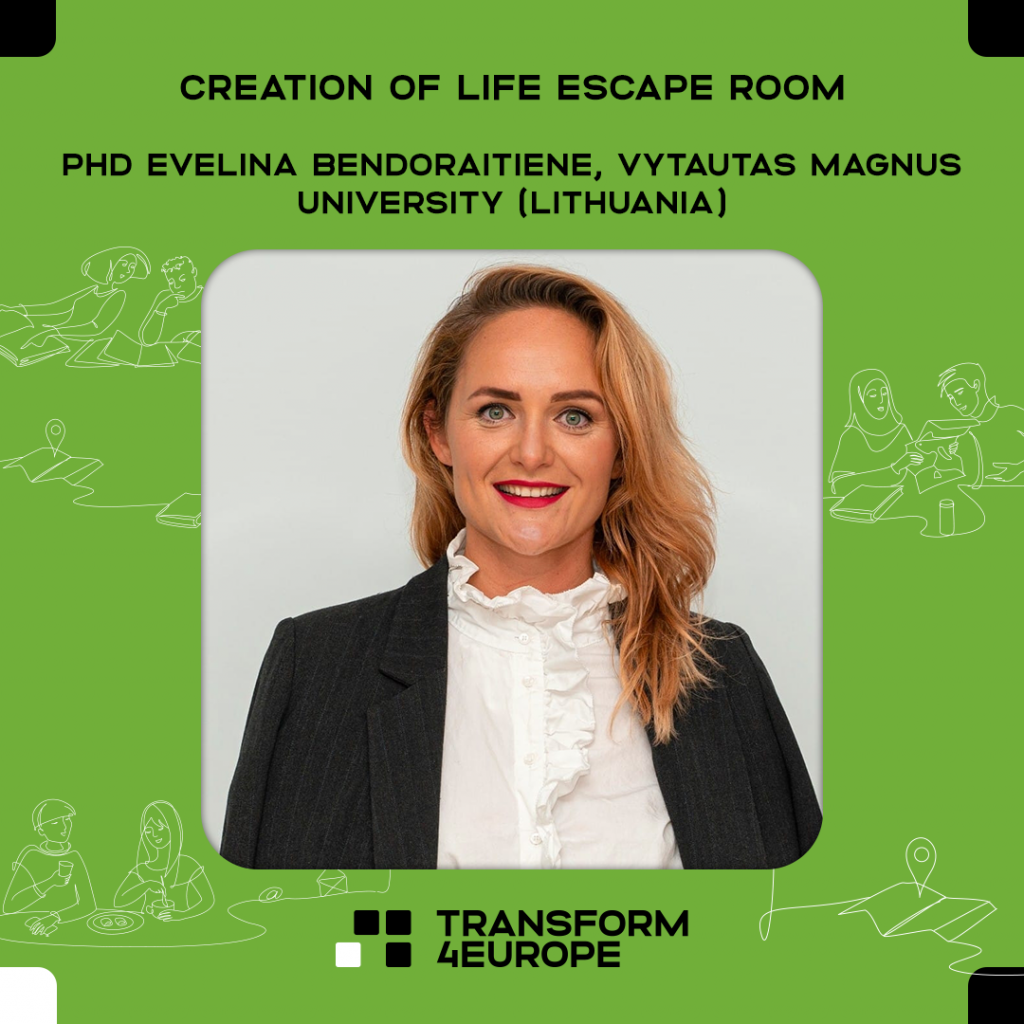
1) Creation of Life Escape room
Dr. Evelina Bendoraitienė, Vytautas Magnus University
The good practice involves assigning a group homework task to students in a financial calculations course to create a life escape room. Working collaboratively, students design puzzles, challenges, and a narrative that incorporate course content and require the application of financial calculation skills. This hands-on approach enhances understanding, promotes critical thinking, teamwork, and creativity, and provides a practical context for learning.
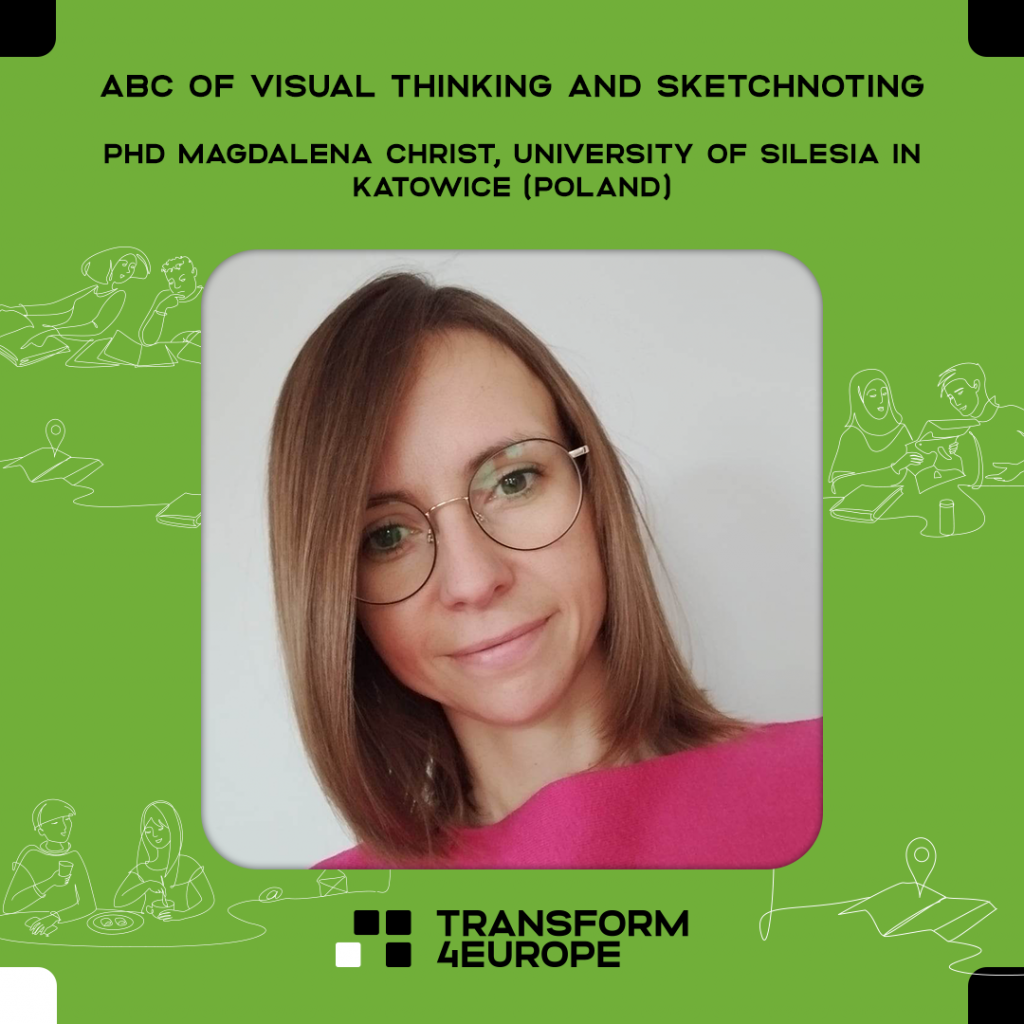
2) ABC of Visual Thinking and Sketchnoting
Dr. Magdalena Christ, University of Silesia in Katowice
The classes aim to familiarize participants with the theories underlying visual thinking, as well as the representatives of sketchnoting and their work as inspiration for their development in this area. During the course, students acquire skills in creating visual notes as a form of organisation and presentation of thoughts, ideas, which can be used to improve the learning process and in various branches of professional life.
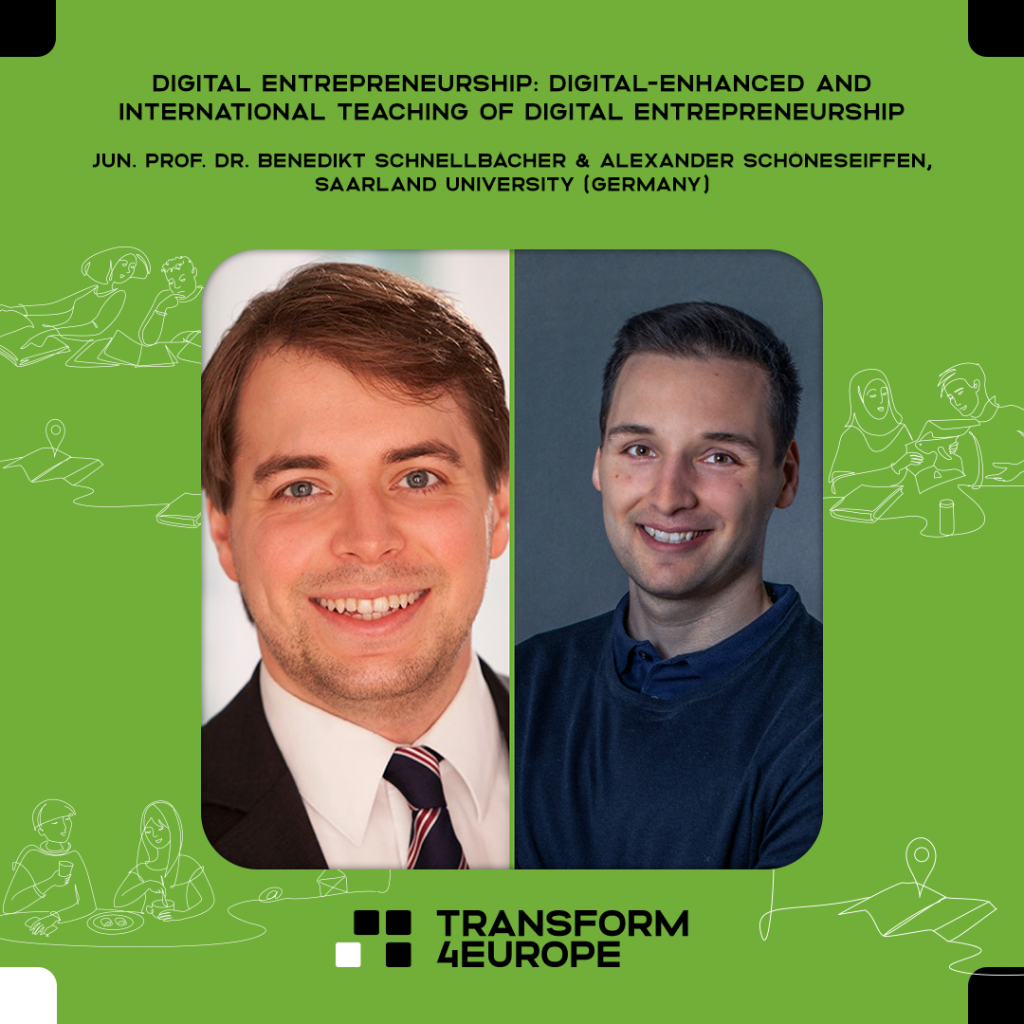
3) Digital entrepreneurship: Digital-enhanced and international teaching of digital entrepreneurship
Jun.-Prof. Dr. Benedikt Schnellbächer and Alexander Schöneseiffen, Saarland University
DIGEN-DIT is a digital-enhanced, international module. Students from all Transform4Europe and Ukrainian partner universities can participate due to its hybrid format, supported by digital tools (e.g. mentimeter). The course encompasses a lecture and a tutorial. The lecture provides students with digital entrepreneurship content from strategy to operational level. In the tutorial student teams develop a startup concept and present it in a pitch event. Lastly, students visit another T4E university to work on an entrepreneurship challenge.
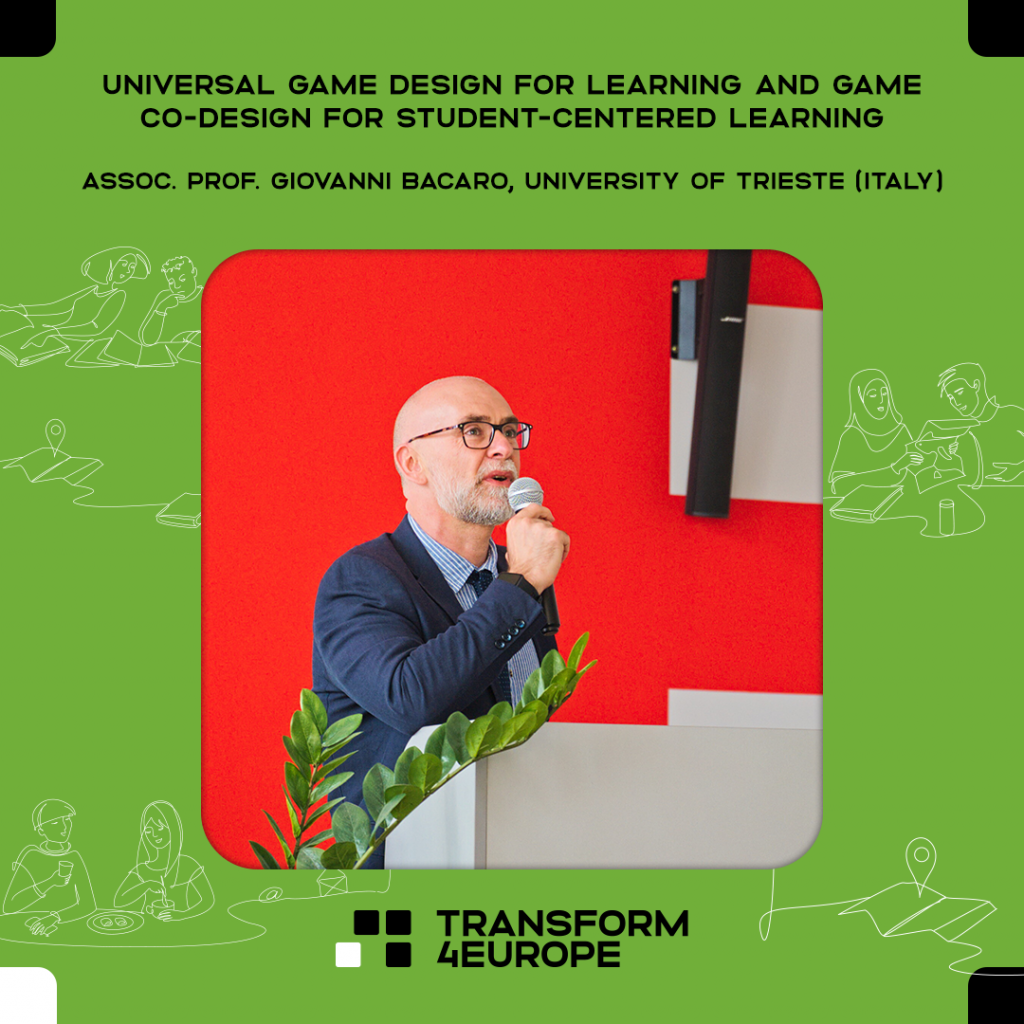
4) Universal Game Design for Learning and Game Co-design for student-centered learning
Assoc. Prof. Giovanni Bacaro, University of Trieste
Novel educational technologies and methodologies that create enthusiasm among students and promote learner engagement are becoming instructional priorities across all disciplines of STEM. Game-Based Learning has established itself as a methodology that addresses students engagement at different levels (student-centered learning, constructivist approach, shared social experience, systems thinking and so on). A generalized Game Design Methodology (GDM), which includes the basic principles of the Universal Design for Learning (UDL) framework is here proposed. Each phase is designed to allow students and teaching staff to develop the game and assess its progress throughout the entire process.















